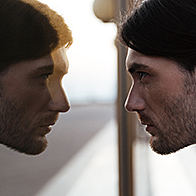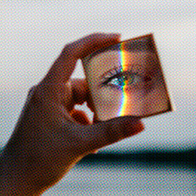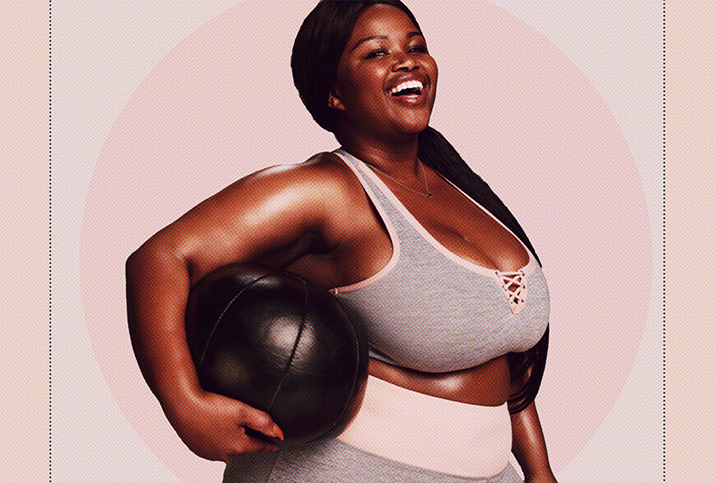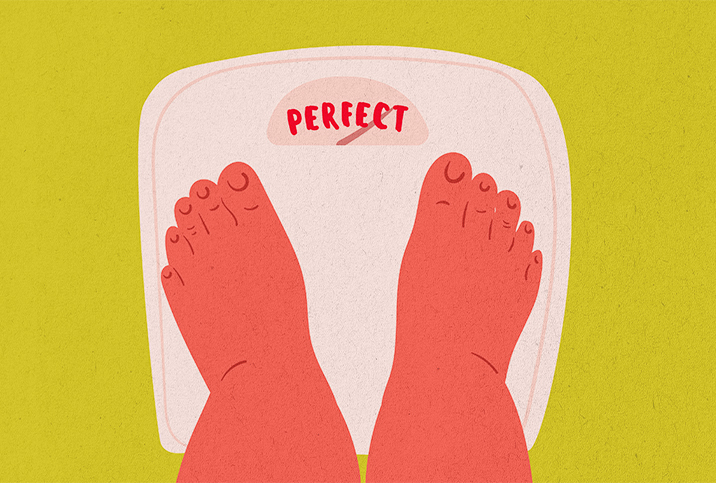Body Image, Its Ties to ED, and How Therapy Can Help
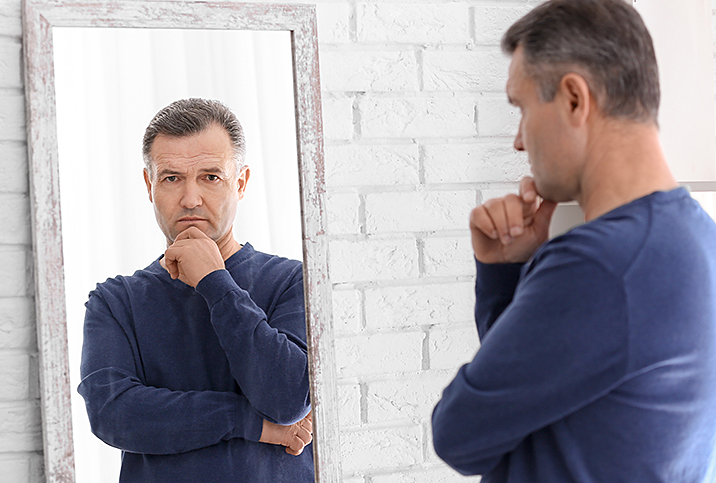
A 40-something patient came to sex therapist Robyn Flores for help with his erectile dysfunction (ED). He was in good physical health, worked out often, stuck to a healthy diet and meditated regularly. When he masturbated, he was able to get an erection, but when he was with a partner, his body image insecurities crept in.
"When he's with someone else, it's like a fear of judgment and performance, and feeling like his body doesn't look a certain way," said Flores, a doctorate candidate and licensed marriage and family therapist who provides client care in Texas and Colorado for Respark Therapy.
Through therapy, she helped the patient get out of his head and into his body during sex, counseling him to focus on the pleasure he was experiencing rather than worrying about how he looked.
"With body image, for males and females, a lot of times there's a disconnect from their head and their bodily sensations," Flores said. "It's almost like they numb out because they don't want to feel. They don't want to be aware of their body because they don't like it."
Over time, this 40-something man was largely able to eliminate judgmental thoughts and shame.
"He's been able to be with several partners and not have too many issues," Flores said. "He knows he's going to have trouble when he's in his head, but when he's able to drop into his body, he's able to enjoy it."
He is not alone. Negative body image is a problem many men face, whether their concerns are tied to body parts everyone sees or more private ones. These image issues can potentially contribute to sexual dysfunction, including ED.
What is body image?
Body image, at its most basic, is how we see our own physical appearance. It's our own attitudes, feelings and thoughts about how we look, even if they don't reflect how we actually look, according to Meghan Gillen, Ph.D., an associate professor of psychology at Penn State Abington. She said body image is becoming increasingly important for men because there's been more pressure on them to achieve a lean, toned athletic appearance.
"There's more objectification of men in the media where we're seeing these idealized male bodies, just like we've seen for women for a number of years," Gillen said. "There's this increasing pressure on men, making this a significant mental health concern."
The connection between body image and ED makes sense to therapist Sara Sloan, L.M.F.T., because mental distraction can play into erectile difficulties. Any anxiety—it can be over body image, performance or anything else—can make achieving an erection more difficult.
Sloan, a therapist at Austin Concierge Therapy in Austin, Texas, pointed out there's a high correlation between obsessive-compulsive disorder (OCD) and ED. While OCD is not the same as body image, she thinks a similar mechanism is involved.
"It's intrusive thoughts that get in the way that cause you to lose focus on your partner and then creates that chain spiral, which is automatically going to cause the penis to go down," Sloan said. "That's a lot of weight being put on the penis."
Intrusive thoughts that stem from negative body image can surface, and when they do, they are just like any other intrusive thought that interferes with sexual enjoyment. This effect applies across a spectrum of people, from someone with religious shame to someone with OCD worried about cleanliness, Sloan said.
The pressure to perform
Gillen said there's more pressure on men than on women to perform sexually.
"There's this emphasis on performance for men in a way that there isn't for women," Gillen said. "I think erectile dysfunction can play a role in that."
Men with ED are likely to have strong feelings about the sexual situation and their body.
"Their body failed them in the situation where they're expected to perform and to be a certain way, and that can impact both their sexuality and body image," Gillen said.
Flores said the concept of performance is what she sees most often in cases of male clients having body image concerns and ED.
"Just the word alone—performance—indicates that there's some shame if they don't perform a certain way," Flores said. "There are these unknown, unseen expectations that their body has to look a certain way, which would be ornamentation, and it has to perform a certain way, which would be instrumentation."
How therapy can help
Men struggling with negative body image and ED may benefit from psychotherapy.
Flores focuses on helping men shift from goal-oriented sex to experience-focused sex. Goal-oriented sex is very organized and focused on performance. Experience-focused sex, on the other hand, is more about dropping into your body and your pleasure and learning how to own and embrace your own body and your own eroticism, she said.
"Sensate focus is something that we do in therapy, and that relies on mindfulness and being able to identify the senses in the body and really focus on communicating what feels good," said Flores, who provides psychoeducation and support for anxiety and other emotions that arise during sex as clients work to accept their bodies. "That really helps with body image."
Sloan thinks some men would benefit from a break from social media. She sees Instagram culture as one of the reasons for the rising prevalence of negative male body image.
"Start by finding two or three things that you love about your body and focusing on those instead," Sloan said. "Essentially, what I'm describing is mindfulness but also cognitive behavioral therapy. You want to start to change your mind by changing what's going in."
Sloan recommends arguing with those insecure inner voices and saying something like, "No, I love my biceps. I think they're amazing."
"Focus on the positive instead of ruminating on the negative," she said.
Types of therapists to seek
Flores said many therapists are not trained in sex therapy and may not be informed about Health at Every Size, a medical approach that emphasizes healthy behaviors, not weight loss, and addresses weight bias and stigma. She recommended finding a sex-positive therapist who can help clients work through shame.
Sloan suggested working with a sex therapist who has experience with eating disorders and body dysmorphia.
"Anyone who's used to working with that, I think, would be a good choice," she said.
Men with past trauma that's contributing to their body image and ED should see a trauma therapist or a specialist in hypnotherapy or eye movement desensitization and reprocessing (EMDR), Sloan said. These therapists can help men process the trauma and break out of negative thought patterns.
Research on the topic
The link between body image and sexual wellness has increasingly been supported by research. People with greater bodily satisfaction tend to report more positive sexual experiences. However, research on the link between male body image and sexual dysfunction is limited.
One important study was published in 2019 in the Journal of Homosexuality. Researchers looked at a sample of 185 gay and bisexual men, and their findings suggested an increased drive for muscularity and lower affective body esteem were predictive of erectile difficulties.
Gillen would like to see much more research done on men's body image and its connection to sexuality.
"I think male body image, in general, is something that needs more attention because of all the increased pressures that are placed on men to achieve this lean and muscular ideal," she said. "There's been an assumption all along about women dealing with this pressure, which is true, and men being somewhat protected from it, but I'm not sure that's the case anymore."







